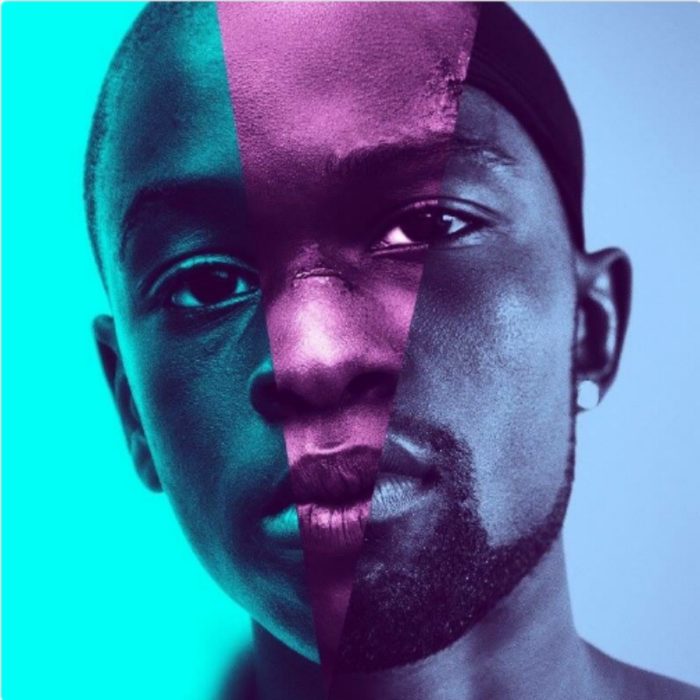Moonlight is a melancholy meditation on love and loneliness set in a Miami that starkly contrasts the postcard ideal. In place of swaying palm trees and neon nightlife, the film depicts an emotional shoreline upon which the tide of individuality nips at the dunes of an exclusive and indifferent world. It’s a sober story told with uncompromising honesty and empathy by director Barry Jenkins.
Adapted from the stage play, In Moonlight Black Boys Look Blue, the film follows Chiron, a gay African American adolescent who struggles to find his place in a society that seems to run perpendicular to him. It’s a triptych of episodes in which three distinct actors portray the character at critical junctures of his life. In the first, a young Chiron, nicknamed “Little” by his classmates, must navigate the conflicting influences of two flawed parental figures—his drug-addicted single mother (a volatile Naomie Harris) and her penitent dealer (Mahershala Ali), who takes him in and teaches him to swim. Wide-eyed yet wounded, first-time actor Alex Hibbert convincingly captures a child adrift, forced to fend off the stones and epithets hurled his way.
By high school, Chiron’s social discrepancies have painted a permanent target on his head. Rail thin, awkward, and outcast, he faces abuse both from bullies in the classroom and his unraveling mother at home. Amidst a daily torrent of humiliations, he finds salvation in an unexpected friendship that transforms the course of his burgeoning adult life, and not entirely for the better. In the film’s final segment, Chiron grapples with regret and reconciliation, torn between the adult persona he’s created for himself and the vulnerable kid he still is at heart.

A complex character emerges from the patchwork of these experiences, one as nuanced as it is familiar. Though Chiron represents a specific and seldom acknowledged minority, his is a quintessential coming-of-age tale that isn’t afraid to stare unflinchingly into an ugly abyss. Jenkins emerges from that void with moments of quiet humanity rooted in his deep sensitivity and compassion for his characters. Even when they fail, Jenkins doesn’t judge. He understands the emotions that pilot them, and lets them steer—for better or worse.
This naturalistic storytelling approach eschews cliché at the expense of closure. Moonlight is sparse by conventional Hollywood standards and its intimate, shallow-focus cinematography further narrows the periphery of Chiron’s isolated world. However, in illuminating the perspective of a single individual, the film reveals something universal about the malleability of the self. Chiron is a direct reflection of the people who surround him, and it takes tremendous courage to turn away from that mirror—to start a new conversation.
And Jenkins has done just that. Moonlight is an invitation to observe an often-unseen America, a country in which even one’s most innate impulse feels alien and unwelcome. It’s a journey that clocks countless miles against Chiron’s emotional odometer—but the destination is a shoreline that transcends race, upbringing, or orientation. Perhaps the takeaway is that the distant dunes are less a division between us and more a collective destination; we’re all out here in the water, struggling to learn to swim.